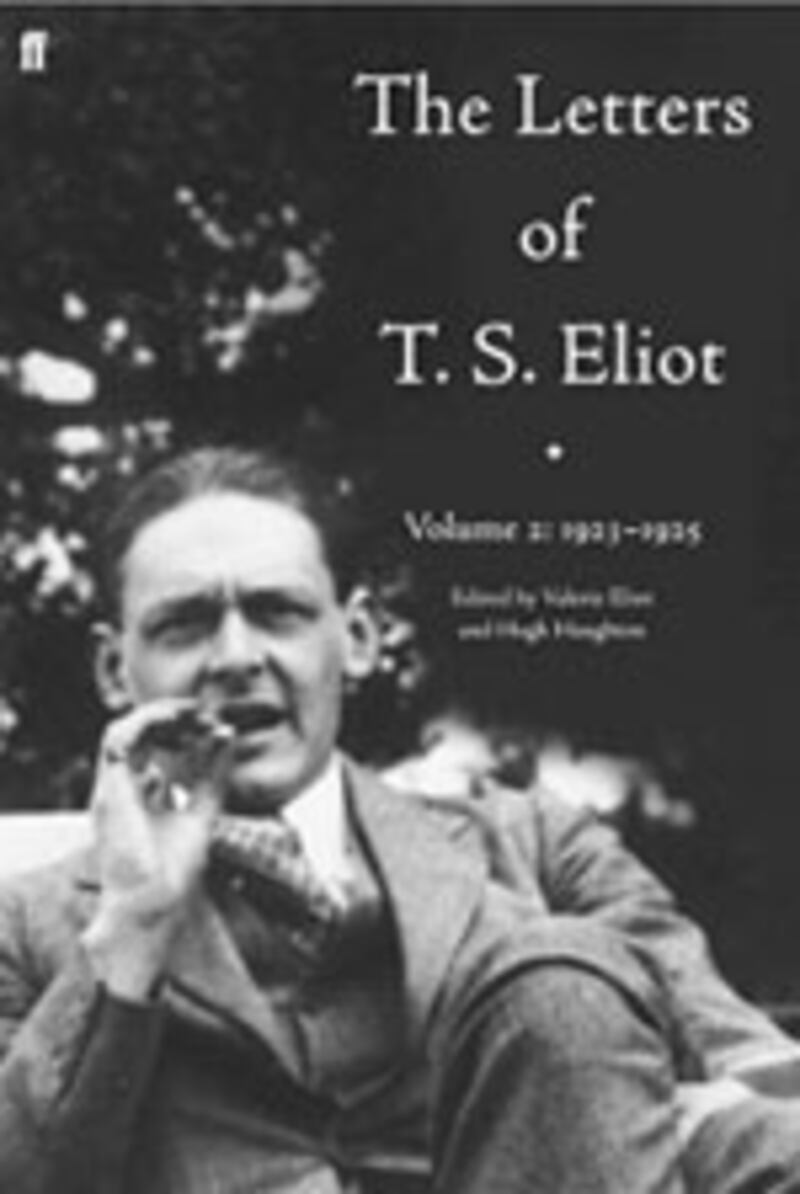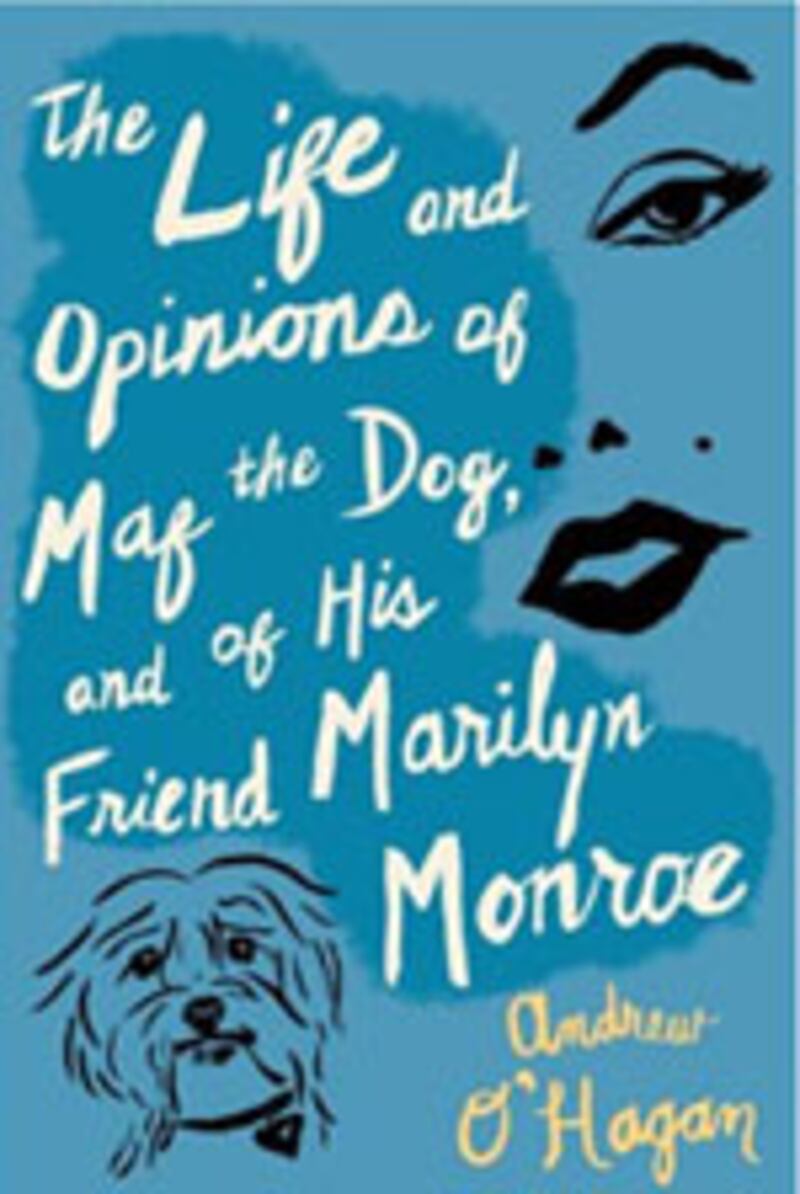A look at great reads from the editor of the Times Literary Supplement. This week: what T.S. Eliot’s letters reveal about him and his wife, Clive James on the late, great poet Peter Porter, and a new novel imagines the life of Marilyn Monroe’s dog, Maf.

What Went Wrong for T.S. Eliot
After the first volume of T. S. Eliot’s letters appeared in 1988, there were promises and high hopes that the second would follow soon after. More than 20 years later, readers can finally decide whether this very public anticipation, felt especially by scholars and biographers, has been fully justified. The period covered, between 1923 and 1925, was less productive of poetry than its predecessor, but the letters shed a sharp light on the marriage that so appalled Virginia Woolf, and on the work of publishing and banking which paid the bills. As Eric Griffiths identifies this week, there is a strong smell of the sickroom in these pages, with “neuralgia,” “neuritis,” “nerve-storms,” and their chemical correctives.
What went wrong for the Eliots is easy yet impossible to say but Bertrand Russell didn’t help. Vivien crooned about his attentions to her in August 1915: “He is all over me, is Bertie, and I simply love him.” In the light of the probability that the philosopher cuckolded the poet, some of Eliot’s letters to Russell can be read only with the steeled grin required for those gibes at “a hornèd man” that Othello imagined at his own expense: “I am sure you have done everything possible and handled her in the very best way—better than I” (January 1916).
As for the drug issue: “After protracted denials, she ‘was most concerned to emphasize’ in December 1925 that ‘her habit of taking chloral during many years was the cause of all her troubles’,” though it is unlikely that only one thing troubled her. Chloral hydrate is no longer in vogue; its hypnotic calm was more largely supplied later in the 20th century first by barbiturates and then by benzodiazepines. But in the late 19th century many were tied to it, notably Dante Gabriel Rossetti; along with diethyl ether and nitrous oxide, it remained the anesthetic of choice for those who liked their highs legal and faintly experimental.
Eliot had once been enthused by Rossetti and his woozy cult of the “blessed damozel” on the rampart of “God’s house” which “lies in Heaven, across the flood / Of ether,” pining away forever for her lover. But he lost his taste for that kind of sub-Dantescan soft-core thrill. He became sharp and sour about the brew of mystic eroticism that the Pre-Raphaelites had on tap, perhaps, Griffiths concludes, because he felt he was living with some of its side-effects.

A Poet Remembered
There was much sadness in the TLS this week at the death of the fine poet, our former poetry editor and long-time contributor, Peter Porter. His fellow Australian-in-England Clive James writes that “if the eternal life in which Peter Porter did not believe had granted him permission to check out the action shortly after his demise, he would have been interested in his obituaries. Self-deprecation having been his characteristic mode both in art and in life, he was always reluctant to claim a victory even when weighed down by the arrival of yet another van-load of laurels.”
“But he might have been pleased to see how, in both Britain and Australia, those deputed in the media to lament his passing nearly all hailed him not just as an Australian poet, but as a poet of the English language. A matter of contention had finally been settled, simply because he had spent so long being the man and artist that he was. His early poetry was so brilliant that the argument should have been over immediately, but sometimes the obvious answer can take a lifetime to become common wisdom.”
James recalls how his friend “had spent much of his career caught in a fork, punished in Australia for trying to please the Poms, and punished in the U.K. for being an Aussie expatriate with a frame of reference above his station.” Later on, he won acceptance in both camps, and by the time of his death he was a living example of the old country’s culture reinforcing itself with the energy of the new, and of the new country’s culture gaining scope from an expanded context. His The Rest on the Flight: Selected Poems, which is published this month and which he lived just long enough to see, “will doubtless provide the core of his heritage.”

Marilyn Monroe’s Dog
Marilyn Monroe's dog called Mafia, a gift from Frank Sinatra, is the narrator of Andrew O'Hagan's new novel. All the animals in it—the dogs encountered in parks and Hollywood backyards and on George Cukor’s movie set–are up for discussions of Freud and Aristotle, writes Mark Kamine in the TLS. Cats speak poetry. Shakespeare, Cyril Connolly, Virginia Woolf, Edith Sitwell, Brecht, Maeterlinck and Dostoevsky feature in human and canine conversation.
“In spite of all this, the novel, with its pronounced roots in the picaresque, has a Disneyish raffishness and cosiness; Maf curls up against Marilyn, bites Hellman and Edmund Wilson and checks out the shoes on the famous feet at a Peter Lawford party. All Kennedy wants from Monroe (putting that relationship in the kindest and chastest light) is to ask her what is ‘the thing that is concealed by fame,’ which as an alternative to his wanting sex is intriguing if implausible. Monroe’s twofold response feels smart. 'You think the answer is private pain, don’t you?' she offers first, before concluding: 'The thing concealed by fame is self-knowledge.' ”
Maf himself is a plainspoken, but often trite narrator, according to Kamine. Dialects are rendered with much punctuation and little subtlety. Thus a Texas teenager: “Am sorry, li’l pup. That was jest me bein’ clumsy now, wasnit? Beg your pard’n” And a poodle from Paris: “A great story-eh. It makes Lassie look like an ’uman being.” The interesting fact that Monroe’s library included copies of Madame Bovary and H. P. Lovecraft’s The Unnameable, is less explored than our reviewer would have liked.
Plus: Check out Book Beast, for more news on hot titles and authors and excerpts from the latest books.
Peter Stothard's latest book is On the Spartacus Road: A Spectacular Journey Through Ancient Italy. He is also the author of Thirty Days, a Downing Street diary of his time with British Prime Minister Tony Blair during the Iraq war.






